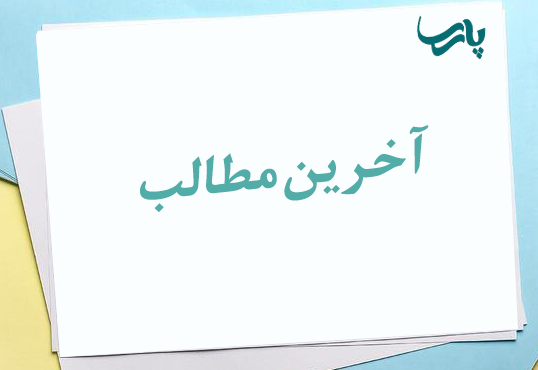0 رای
1
پاسخ
0بازدید
0 رای
1
پاسخ
0بازدید
0 رای
1
پاسخ
0بازدید
0 رای
1
پاسخ
0بازدید
0 رای
1
پاسخ
0بازدید
0 رای
1
پاسخ
0بازدید
0 رای
1
پاسخ
0بازدید
0 رای
1
پاسخ
0بازدید
0 رای
1
پاسخ
0بازدید
0 رای
1
پاسخ
0بازدید
0 رای
1
پاسخ
0بازدید
0 رای
1
پاسخ
0بازدید
0 رای
1
پاسخ
0بازدید
0 رای
1
پاسخ
0بازدید
0 رای
1
پاسخ
0بازدید
0 رای
1
پاسخ
0بازدید
0 رای
1
پاسخ
0بازدید
0 رای
1
پاسخ
0بازدید
0 رای
1
پاسخ
0بازدید
0 رای
1
پاسخ
0بازدید

- برای عمل به تکلیف شرعی خود در قبال فریضه ام...
📌 تاریخ :1402/02/28 - برای مدیریت خود برتربینی در خود و دیگران، چ...
📌 تاریخ :1402/02/28 - مدتی است در طهارت و عبادت، مبتلا به وسواس ش...
📌 تاریخ :1402/02/28 - نظر حضرتعالی راجع به زیارت مکرر و پی در پی...
📌 تاریخ :1402/02/28 - با اینکه از همسر فعلی خود کاملا راضی هستم،...
📌 تاریخ :1402/02/28 - آیا متعه کردن که در اسلام و تشیع حلال است ب...
📌 تاریخ :1402/02/28 - فرزندان بنده گاهی دستم را می بوسند و متقابل...
📌 تاریخ :1402/02/28 - معنای دعای ذیل چیست؟ این فراز از دعای وارد...
📌 تاریخ :1402/02/28 - از یک بزرگواری شنیده ام که قبر حضرت زینب سل...
📌 تاریخ :1402/02/28
📌 تاریخ :1402/02/28 - برای مدیریت خود برتربینی در خود و دیگران، چ...
📌 تاریخ :1402/02/28 - مدتی است در طهارت و عبادت، مبتلا به وسواس ش...
📌 تاریخ :1402/02/28 - نظر حضرتعالی راجع به زیارت مکرر و پی در پی...
📌 تاریخ :1402/02/28 - با اینکه از همسر فعلی خود کاملا راضی هستم،...
📌 تاریخ :1402/02/28 - آیا متعه کردن که در اسلام و تشیع حلال است ب...
📌 تاریخ :1402/02/28 - فرزندان بنده گاهی دستم را می بوسند و متقابل...
📌 تاریخ :1402/02/28 - معنای دعای ذیل چیست؟ این فراز از دعای وارد...
📌 تاریخ :1402/02/28 - از یک بزرگواری شنیده ام که قبر حضرت زینب سل...
📌 تاریخ :1402/02/28
تماس با ما
آدرس : آزمايشگاه داده کاوي و پردازش تصوير، دانشکده مهندسي کامپيوتر، دانشگاه صنعتي شاهرود
09111169156
info@parsaqa.com
حامیان



همكاران ما


کلیه حقوق این سامانه متعلق به عموم محققین عالم تشیع است.

